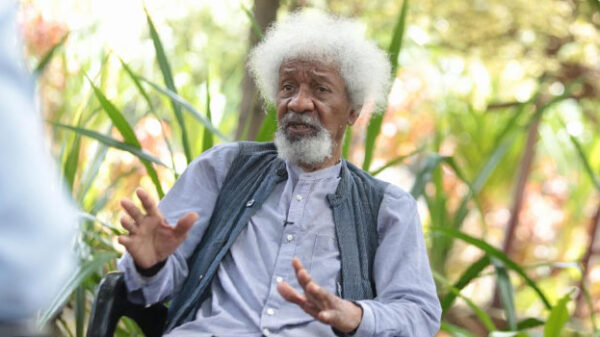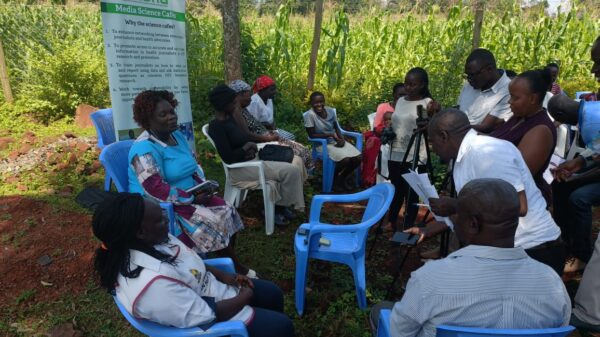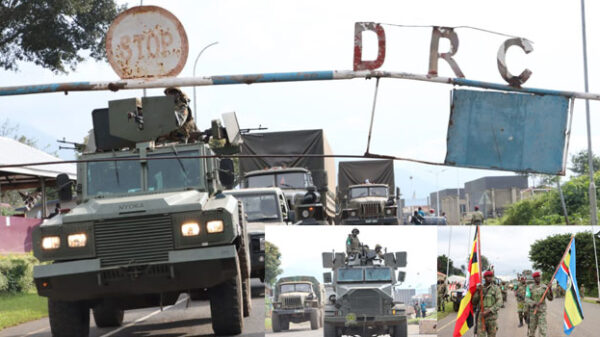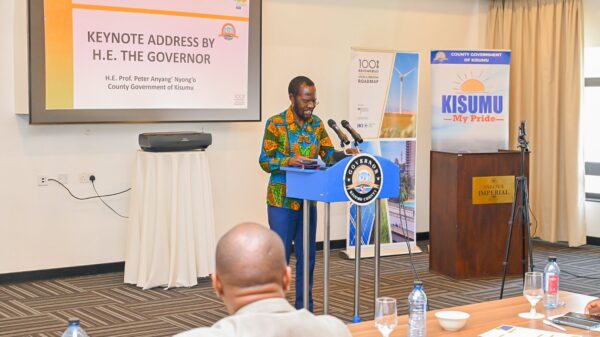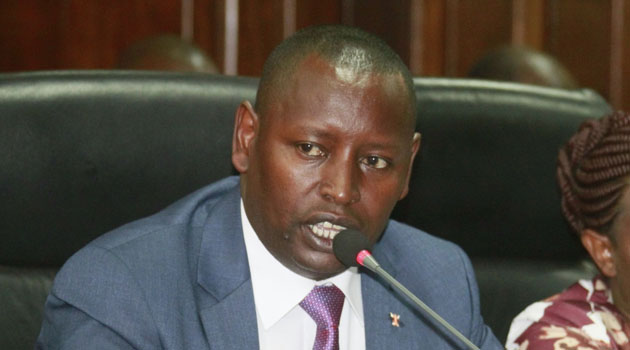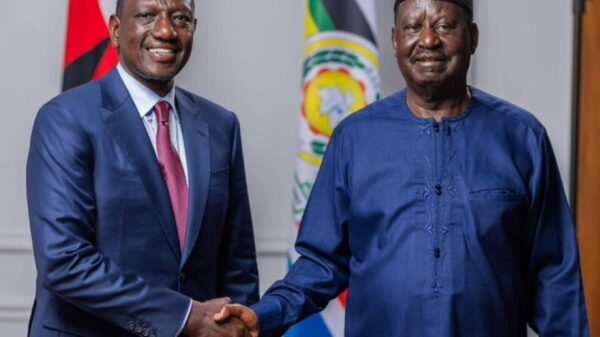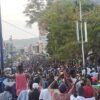NAIROBI, Kenya, Feb 19- Years later, darkness still envelopes torture chamber cells in Nyayo house.
It is so dark that a torch’s light is not enough to illuminate the 10 by 10ft cells, that holds harrowing memories of Kenya’s darkest days, when the word freedom only existed in a dictionary.
When Wahinga Wa-bure took this Reporter to the cell he spent 46 days and nights, he was tiptoeing- not because he has challenges in walking but like someone carrying a heavy load.
He was walking back to a place he passionately pleaded with his maker to take his life.
“I wanted to die, I really did,” with a sharp glare, Wa-bore, asserted, shaking for fear of his tormenters, thinking they were still around.
The ghosts of Nyayo House torture chambers are still alive and they were pulling the 62-year-old father of three while a sequence of flashbacks was impairing his vision.
Decades later, he has no courage to detail everything that happened to him, but without digging into much details, he recalls that for the time he was in the torture chamber, he remained naked, he would be beaten, denied food and sometimes his testicles pulled.
“I cannot narrate everything. Pain belongs to the bearer, you cannot understand,” after a prolonged pose, as if in deep thoughts, he said.
“The most fortunate thing about the human mind is that if you subject a person to a lot of torture, that ceases to be torture and become normal. I was more relieved when being beaten. It was more painful staying like that.”
This is a story of a man who survived torture but living with its dire effects to date.
About three weeks to his final examinations in 1982, in the University of Nairobi (UoN), there was an attempt to overthrow the late Daniel Arap Moi as President.
It was on Sunday, 1 August 1982, the date “that changed my life forever.”
Wa-bure was then a vocal Secretary-General of the UoN student body and he would be a victim of the ruthless crackdown that followed.
A third-year student would be jailed for 6 years alongside soldiers and tens of human rights defenders. A jail term he served until 1988.
But the following year, in 1989, he was arbitrarily arrested, detained for 46 days inside the chambers, where he underwent torture under the hands of two people, “James Opiyo and the beautiful lady from Karatina.”
“I was denied food, beaten, kept naked…” he narrated.
-Inside the Nyayo house chambers-
The Nyayo chamber has 14 cells.
They are small cells, dark and with soundproof walls and have tiny holes for ventilation but often, the same spot, he said, was used to torture detainees.
Through the ventilation holes, the officers tasked with subjecting pain to those detained would be based at a control room, where they unleashed the wrath.
According to Wa-bure’s narration, and corroborated with others, they would release either extremely cold or hot air, dust and at times, water.
Their feet were always submerged in water.
“We would be taken to the 26th floor for torture and then brought back here,” he said.
The effects of being jailed for 6 years and later detained for 46 days without trial at the Nyayo torture chambers has lived with him since then, “I cannot speak about it. If only you know what I go through, son, you would not ask that question.”
But has he forgiven his tormentors?
It is a question that caught him in surprise and with a raised tone he rhetorically asked, “have you asked whether I have forgiven them?”
After a few seconds, he said, “ I will never forgive them. Never ever.”
The biggest sin was not torturing him, he said, but what they did to his mother.
“They physically and mentally tortured my mum,” holding back tears, Wa-bure said with a quavering voice.
And for that, he will not forgive them- the tormentors.
Her mother would be tasked by the defunct special branch officers to remove his son’s ‘hidden’ guns- which Wa-bure did not own.
If they were looking for a paper and a pen, he said, they would have found no trouble finding them.
“I was just a student and not a military officer,” he said.
He admitted being part of Mwakenya movement- a group of patriots- that was formed in the 1980s to fight for multi-party democracy.
Its members advocated for the opening of democratic space in Kenya through public lectures and distributing leaflets.
-I am in a bigger jail out here-
Ironically, during the interview, Wa-bure said he was better off locked inside the torture chambers than out here in ‘freedom.’
Out here, he said it is “a bigger jail. And we are many.”
He knows no peace and in his own words, he doesn’t think he will ever find it within his lifetime.
“I don’t have peace even now and I vehemently say so, “he declared and as if cautious of something, he whispered “I don’t think I will find it (peace) with these kind of people surrounding me; the torturers.”
All this happened under the tenure of former President Moi who publicly asked for forgiveness when he handed over power in 2002 to President Mwai Kibaki.
But Wa-bure believes it was not a genuine call for forgiveness.
“He used the word “if” meaning he is not even sure whether the torture happened or not,” he said. “I will never forgive Moi.”
The late President died on February 4, aged 95.
He spoke during the 16th anniversary of the opening of the [torture] chambers to the public in the company of other survivors and their family members- who equally share his sentiments.
In their list of demands, the survivors asked the Government to respect a recommendation by the Truth Justice and Reconciliation Commission (TJRC) report and convert the cells into a shrine of remembrance.
They also want the criminal records of all the victims expunged from the government records and archived in the chambers once they are converted into a shrine of remembrance.
“We came here to remind the Government of their pledge to make this a shrine of remembrance,” said Kariuki Gathitu, son of a victim of torture.
It is a pledge that the Government made some 16 years ago and one that has never been honoured.
“We refuse to forget the gross human violations that took place inside these chambers,” he said.
They also want the Government to enforce the establishment of the Sh10 billion Restorative Justice Fund which President Uhuru Kenyatta promised in 2015.
But will the ghosts of Nyayo house leave them in peace?
Other than Wa-bure some of the prominent Kenyans who were detained in the Nyayo chambers include former Prime Minister Raila Odinga, Meru Governor Kiraitu Murungi, former legislators Gitobu Imanyara and Koigi wa Mwere among others.

